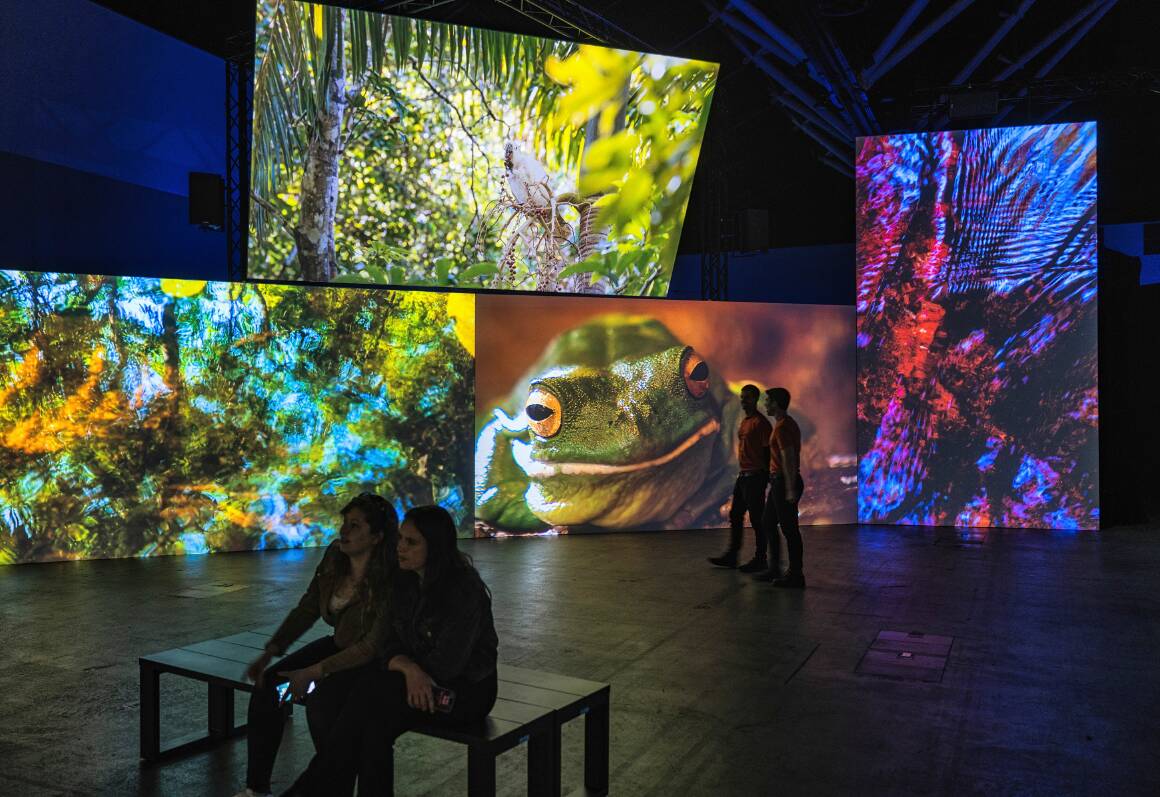
Karina Holden is not what you would call an overnight sensation. The head of factual at Northern Pictures, she is a conservation biologist turned natural history filmmaker. Along the way she's become a star, with a show she co-created, Love on the Spectrum (US version) winning four Emmy awards, including outstanding unstructured reality program.
The patience that comes with making films about nature has been at work. For the last two years, she has been creating Our Country, an immersive experience with 40 screens rolling nearly 12 hours of film showing Australia's natural landscape in all of its glory into a one-hour presentation - including native species and habitats.
The Our Country film, featuring a soundtrack by The Bowerbird Collective (led by cellist Anthony Albrecht and violinist Simone Slattery), takes viewers into the wonders of Australia's natural assets, like a yellow-bellied glider screeching and calling across a forest in the night, bandicoots scurrying under the cover of darkness, kangaroos active in a mountain blizzard, crocodiles jumping out of the water to catch fish.
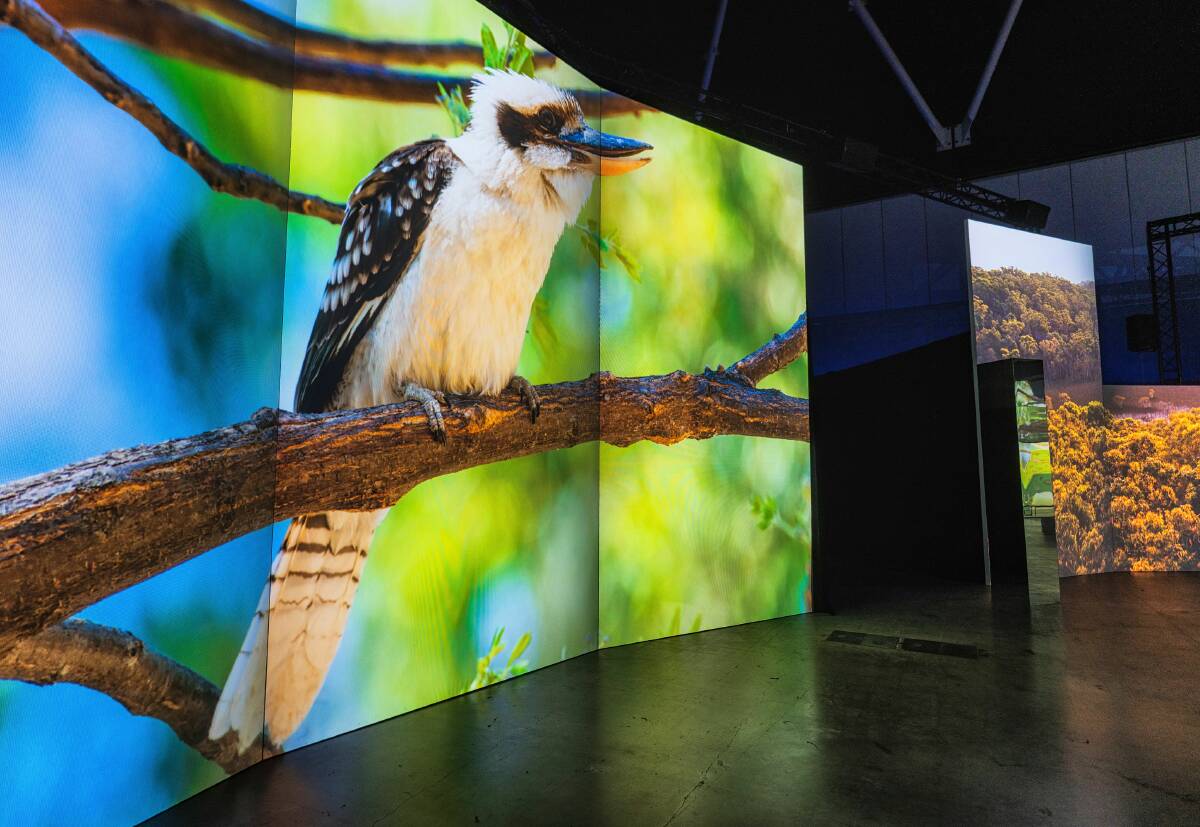
"You want to get to new audiences in new and different ways with new technology and so we conceived working with Australian Geographic our sister company, this more immersive way of experiencing content in the round," Holden says.
"It was about two years' worth of work, and it drew on all of my experience and the people I knew who were amazing talents in different specialty areas. It was an absolute joy to put together."
The final product includes 40 six-metre-tall screens spread over 1500 square metres, with an accompanying soundscape that has speakers in 360-degree positioning.
There is no narrative voiceover, but plenty of nature's sounds and the Bowerbird Collective's blend of strings and natural calls.
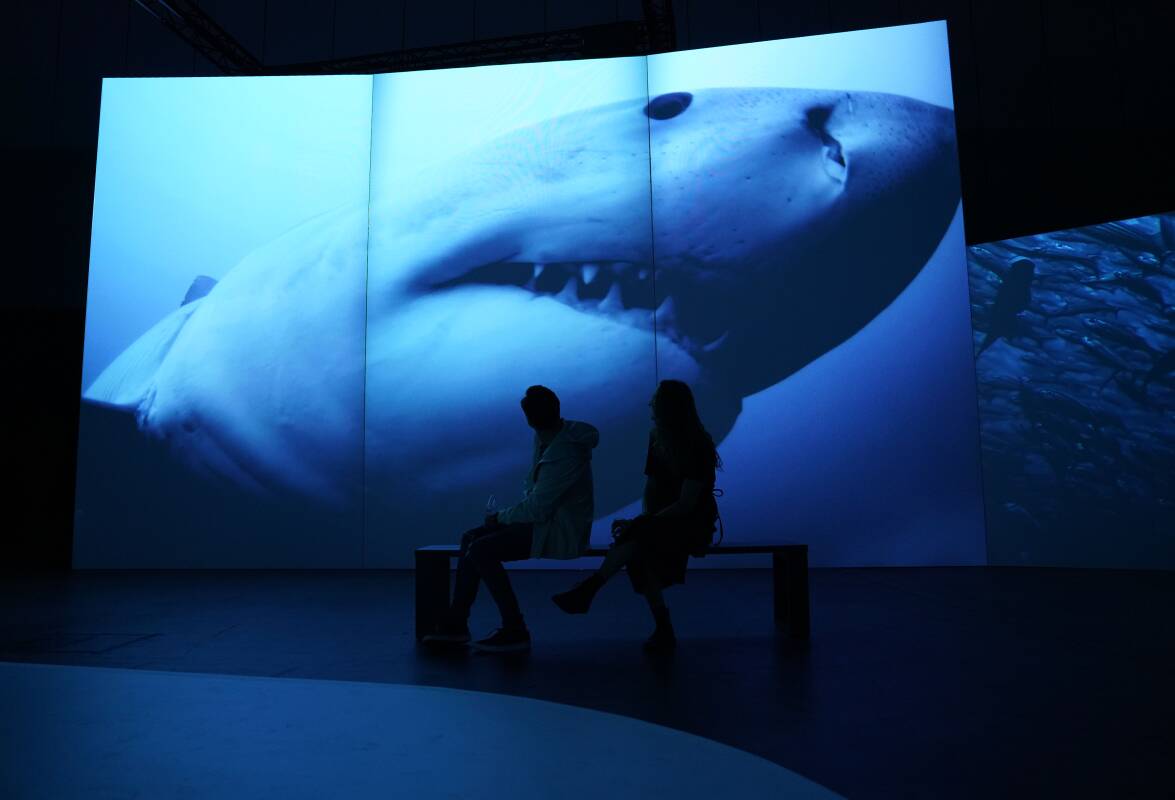
"The delight for the viewer is that it is all condensed for them," Holden says, "so they can see the things that take so long to go out into the Australian landscape and see yourself. The way that we film things in time lapse, you watch the plants grow before your eyes, in just several seconds. The moment the desert floods. The incredible storm time lapses - a photographer spent five seasons in a row up there during the monsoon season. That is the treasure trove people can tap into when they attend."
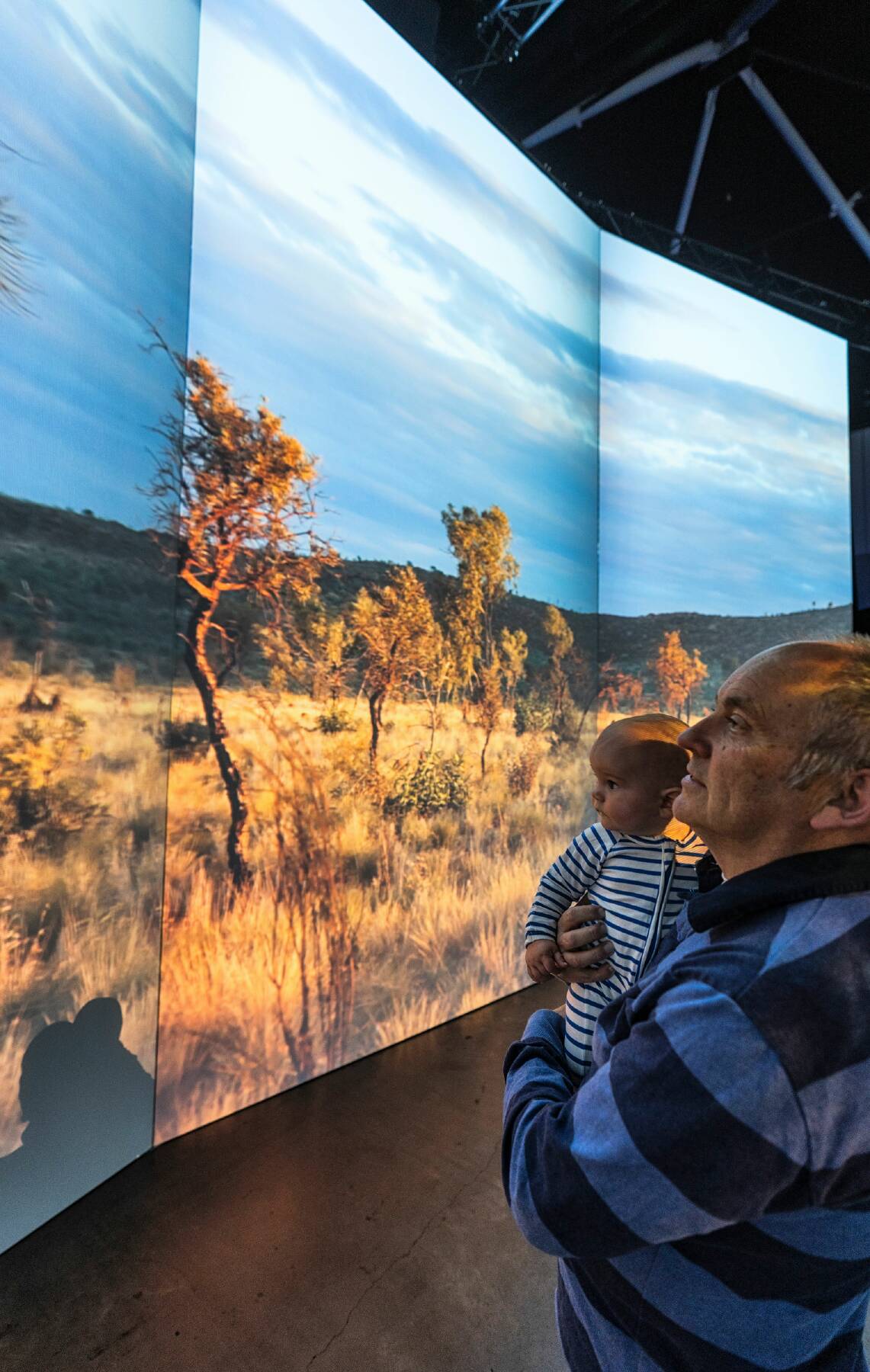
Having 100,000 hours of archival material from Australian Geographic as a resource was a great starting point. Footage from motion-controlled time lapse cameras and UHD aerial drones provides imagery not seen by the naked eye very often.
"That's 100,000 hours of field work over the years," Holden says. "In natural history - and what we did - there is a lot of sitting and waiting and logistics, and setting up, getting everything, and being in the right place at the right time, being there for that one moment to happen.
"So in order to get that moment, you see an extraordinary piece of behaviour, there's hundreds of hours usually, in waiting and thousands of hours worth of planning before you get there and are on the ground and able to actually witness something extraordinary."
It was a bold step of creative genius to leave out a narrative.
"It was a deliberate choice to leave the space for nature to speak for itself," Holden says.
When you watch a traditional documentary, you are told information the whole time, she says. "You're engaged in the process of the narrator telling you what to think, where to look, what to learn."
But Our Country is not the same. "This is very much, a personal experience," she says. "You can know a lot about nature or you can know nothing, and that's why it's so great for a broad family audience. You can go along with your toddlers, you can go along with your grandparents, and you sit there, and people reflect on the places they've been to, and what they are seeing and they get excited to see places they may have been but they didn't see it at that particular time of year or with those suite of animals performing that extraordinary behaviour."
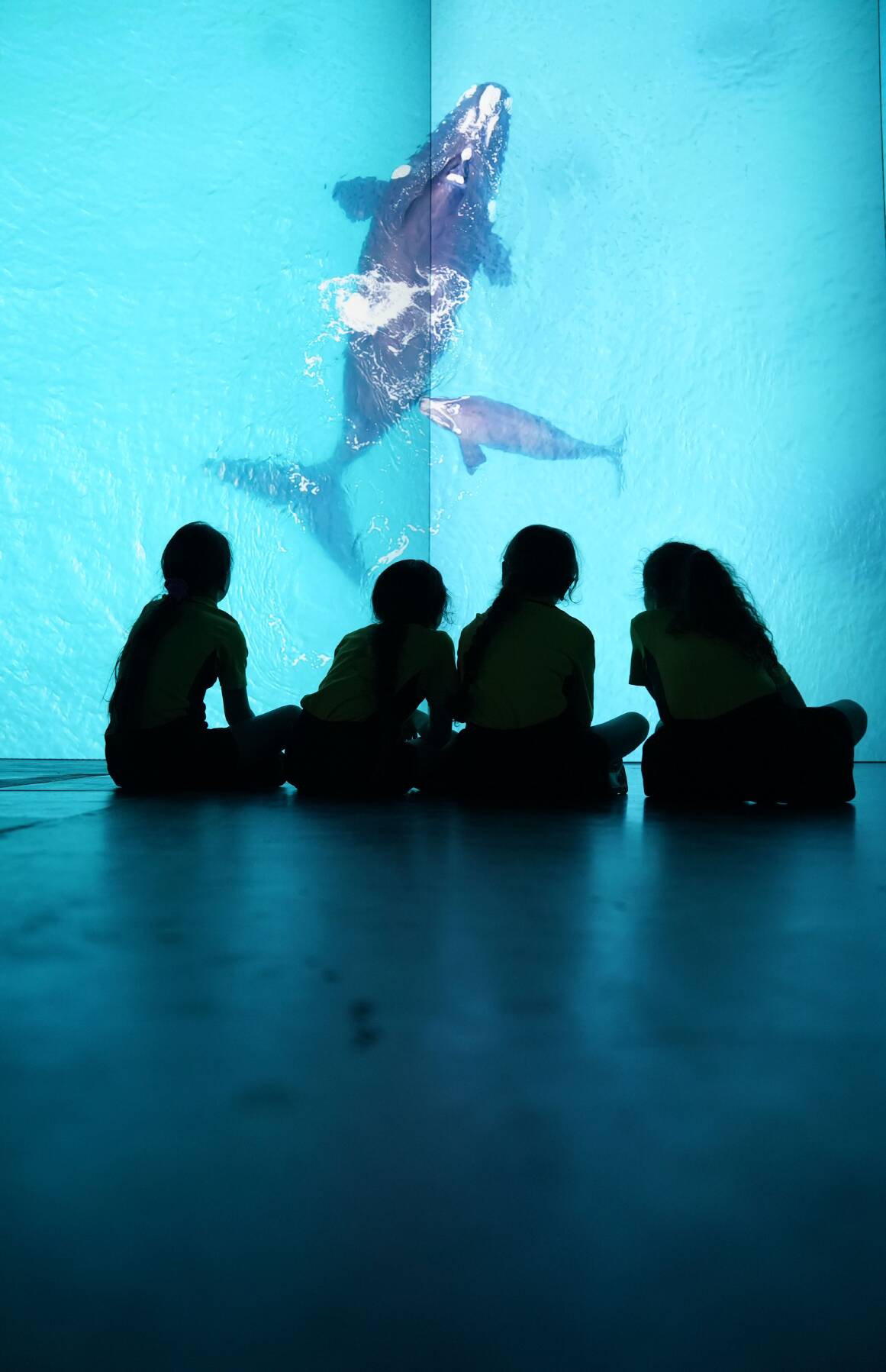
The Bowerbird Collective soundscape provided another layer. The Collective, which has made albums featuring Australian bird calls and frog calls, was created by Albrecht and Slattery, accomplished musicians and composers.
"They are incredible musical performers and the way they interpret their instruments almost as animal calls and they're able to play...," Holden says. "They don't play their instruments in a traditional way. They bow and drum on their cellos and violins in such a beautiful way.
"In fact, we have scenes in the experience where we have whales calling, when we're underwater, but when we're above water, with southern right whales I chose to use the bowing that Anthony [Albrecht] does that mimics the whale call. And a lot of people don't realise one is an instrument, the other is actually the whale.
"They are brilliant musicians. They really tap into the ethos of landscape. I think in Australia, finding our voices, what's our musical voice, is something that is still emerging. But I think they are reflecting back our nature in such a beautiful way I'm excited to be able to have them collaborate."
Albrecht says the music that is performed in Our Country comes both from their Songs of Disappearance album, which tell the story of songbird, as well as a whole branch of new music, by Slattery, written for various context explicitly related to nature which "seemed to fit with the incredible visuals of Our Country".
"Our mission is to make art for nature, to bring people more emotionally closer to conservation issues through our projects," Albrecht says. "Many of our projects require us to read extensively and learn about nature and the incredible species, in many cases, severely under threat.
"When you learn the beauty and incredible fragility, you can't help but fall in love with them. I think we share that with Karina."
Albrecht summed up the Collective's involvement in Holden's Our Country film: "I think we feel she is a kindred spirit to storytelling, you're bringing people into the story of conservation, without making them feel really pressured or overly negative about the state of the planet. There is so much to celebrate in the natural world."







